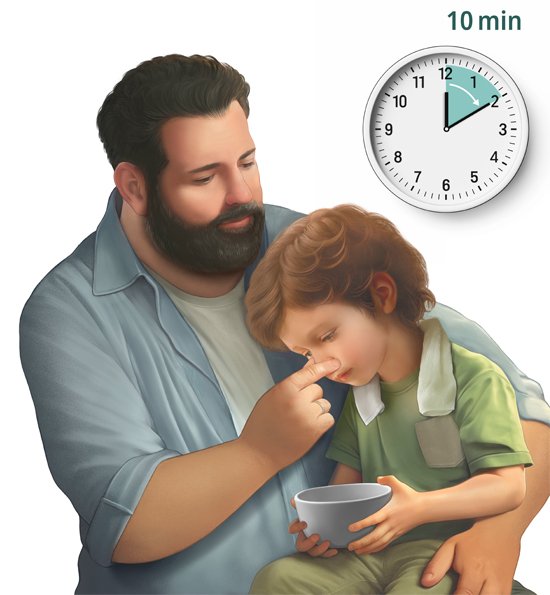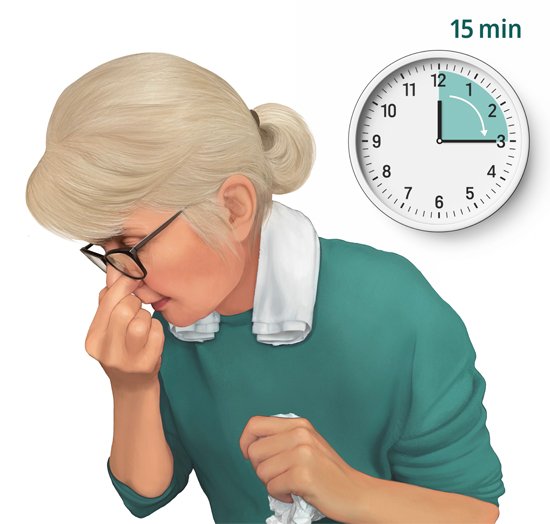Introduction

It can be worrying if you suddenly start bleeding from your nose. But nosebleeds are mostly harmless and often stop by themselves. The bleeding is usually caused by minor damage to the mucous lining of the nose, like from picking your nose or if you have a cold. Nosebleeds normally heal by themselves.
To stop the bleeding, it usually helps to lean forward slightly and hold your nose for a few minutes. This also works for children.
The bleeding is most commonly at the front of the nose and the blood flows out of the nostrils. In rare cases, the bleeding is far back in the nose, and the blood then flows into the throat and can easily be choked on. That can cause nausea and vomiting. Nosebleeds at the back of the nose are more difficult to stop because the bleeding is usually heavier. It almost only happens in adults and has to be treated as soon as possible because otherwise there can be a lot of blood loss.


